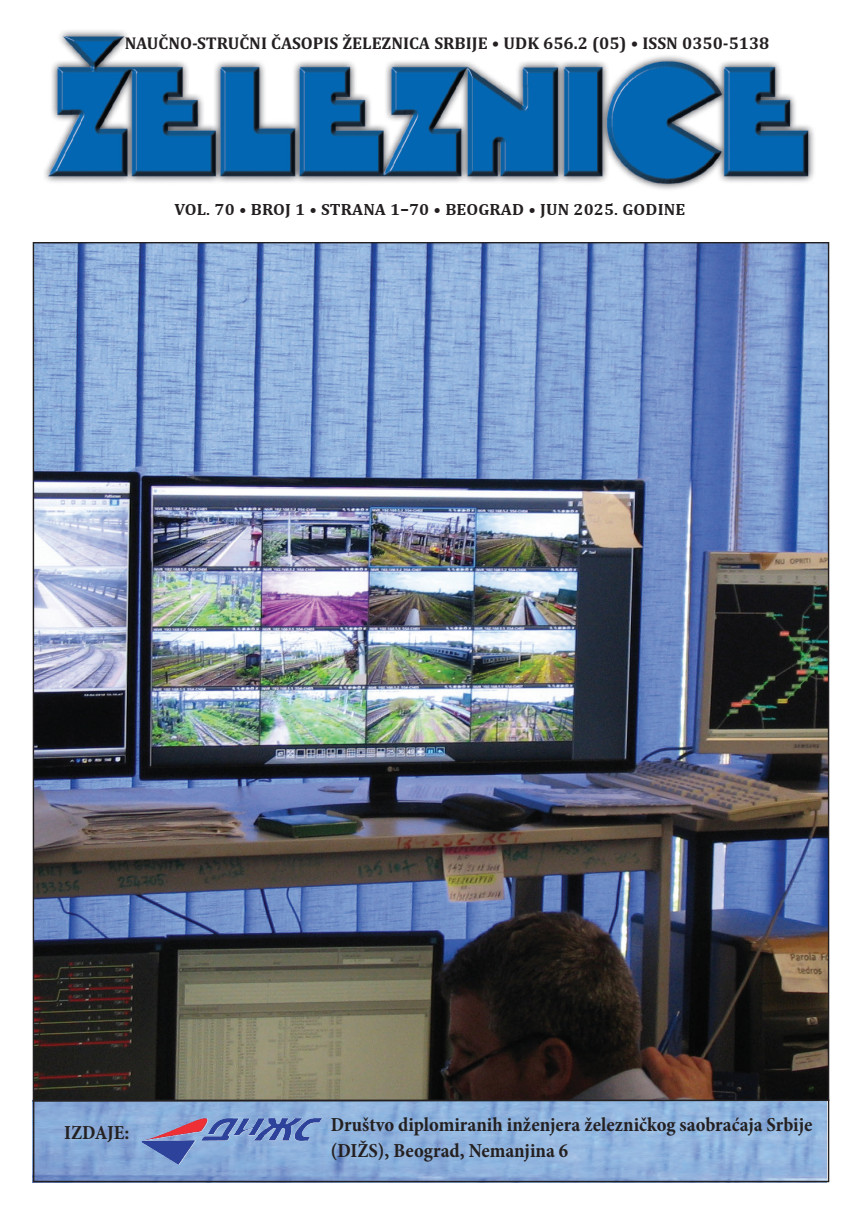OPTIMIZACIJA CIKLIČNOG REDA VOŽNJE: PRIMER ŽELEZNICA U HOLANDIJI
Ključne reči:
železnički saobraćaj, ciklični red vožnje, jednosatni red vožnje, modeli optimizacije reda vožnje, ciklično sekvenciranje, planiranje reda vožnje, železnički operateriApstrakt
Ciklični red vožnje znači da linije na kojim saobraća voz koriste fiksne intervale, ciklična vremena. Npr. u Holandiji koristi se ciklični red vožnje za period od jednog sata, takozvani jednosatni red vožnje (One-Hour Timetable). Jednosatni red vožnje je red vožnje za jedan sat, koji je konstruisan tako da se pokreće konstantni broj vozova u toku jednog sata. Prednost cikličnog reda vožnje najviše se ogleda sa stanovišta putnika jer se u uvek istom minutu od početka sata pokreće odgovarajući voz i tako svakog sata u toku dana. Za operatora glavna prednost je što treba da rasporedi vozove u samo jednom ciklusu koji se ponavlja. Raspored rada osoblja uglavnom nije cikličan. U radu su definisani ciljevi izrade cikličnog reda vožnje na železnici, a zatim je detaljnije obrađen primer cikličnog reda vožnje na železnicama u Holandiji. U zaključku su istaknute prednosti cikličnog reda vožnje (npr. lako pamćenje vremena polaska i dolaska vozova, lako i efikasno obezbeđivanje većeg broja presedanja putnika iz voza u voz), kao i mane ovog reda vožnje (nema velikog broj direktnih linija između gradova, smanjena fleksibilnost ovog red vožnje).
##submission.downloads##
Objavljeno
##submission.versions##
- ##submission.versionIdentity##
- ##submission.versionIdentity##


